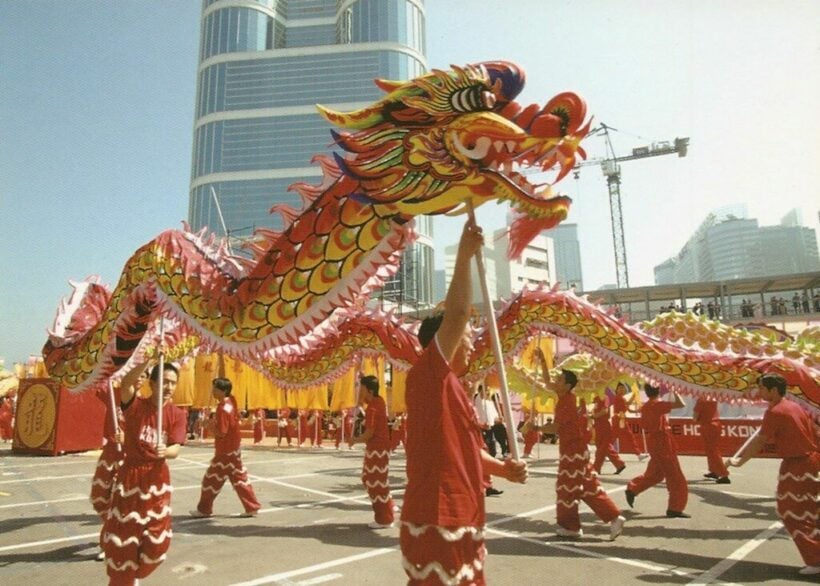Water fights, dancing dragons, and dumpling soup: New Year traditions around Asia

In Western countries, the start of a new year is usually celebrated with fireworks and parties – and often topped off with drunken renditions of Auld Lang Syne. Not so in Asia, where traditional New Year celebrations are a little bit different. As we welcome 2022 (and plead with it to go easy on us), here’s what New Year festivities look like across 6 Asian countries.
China
The Chinese New Year is celebrated in February, with firecrackers, hanging red lanterns, and lion dances. Also known as Spring Festival, legend has it that it all began with a fight against Nian – a mythical creature resembling a cross between a lion and a bull, that appeared in China on New Year’s Eve. The story goes that villagers quickly discovered the creature was scared of loud noises and fire, as well as having an aversion to the colour red. And so, the tradition of covering houses in red and lighting firecrackers was born…
Nowadays, people hang red lanterns and there are street parades in which performers dress up as lions and dragons. It’s tradition to give children little red envelopes containing money, which is supposed to bring good fortune their way during the year. Over the New Year holiday, the Chinese eat traditional noodle dishes, symbolising a long life.
Korea
Korean New Year, or Seollal, is also celebrated in February, with people wearing traditional Korean clothing known as hanbok and coming together to pray to their ancestors for good health and peace. This ritual is known as charye and also involves eating eumbok, traditional food through which people receive the blessings of their ancestors. Once they’ve finished eating, the younger generation pay their respects to their elders by bowing to them (a practice known as sebae) and receive sebaedon (New Year money) in return.
Tibet
The Tibetans celebrate the Losar Festival, or Tibetan New Year, by eating guthuk, a dumpling soup made from rice, chillies and er… coal. The day starts early, with people placing animal offerings in shrines in their homes and hanging traditional Tibetan prayer flags to spread peace, wisdom, and compassion. Legend has it that the flags’ messages are carried along by the wind. It’s also tradition during Losar to chase away evil spirits with straw torches and firecrackers.
Vietnam
Tet, or Vietnamese New Year, is a time for family reunions, with relatives coming together from all over the country and the spirits of long-dead ancestors welcomed too. During the holiday period, people fill their homes with flowering peach trees, which are believed to bring good fortune. The traditional Tet dinner consists of bánh chung – rice cakes filled with beans and pork and mang, a soup made from bamboo shoots.
Bali
The Balinese New Year is known as Nyepi and is celebrated in March. During the holiday, Hindus parade through the streets carrying ogah-ogahs or effigies of demons. During these parades, they also use coconut husks to whip each other, which is supposed to chase away any evil spirits. On the day itself, everything shuts down, with a government ban on working or using cars or lights. People are expected to spend the day quietly reflecting, in the belief that the silence will fool evil spirits into thinking everyone has left Bali and therefore they should too…
Thailand
Naturally, we couldn’t finish without mentioning the Thai New Year celebration, or Songkran, as it is known to Thai and farang alike. Songkran is the start of the new solar year and the celebration takes place in April. What started out as a gentle custom of pouring water over statues of Buddha and the hands of elderly relatives has, with the passage of time, evolved into the world’s biggest water fight. Take note, if you don’t want that shiny new laptop or mobile phone to be rendered useless, leave it at home during Songkran. The association with water comes from the Thai belief that it washes away bad fortune. During this period, Thais will travel to their home provinces to reunite with their families and Buddhists will make merit at temples.
SOURCE: Western Union
Latest Thailand News
Follow The Thaiger on Google News:


























